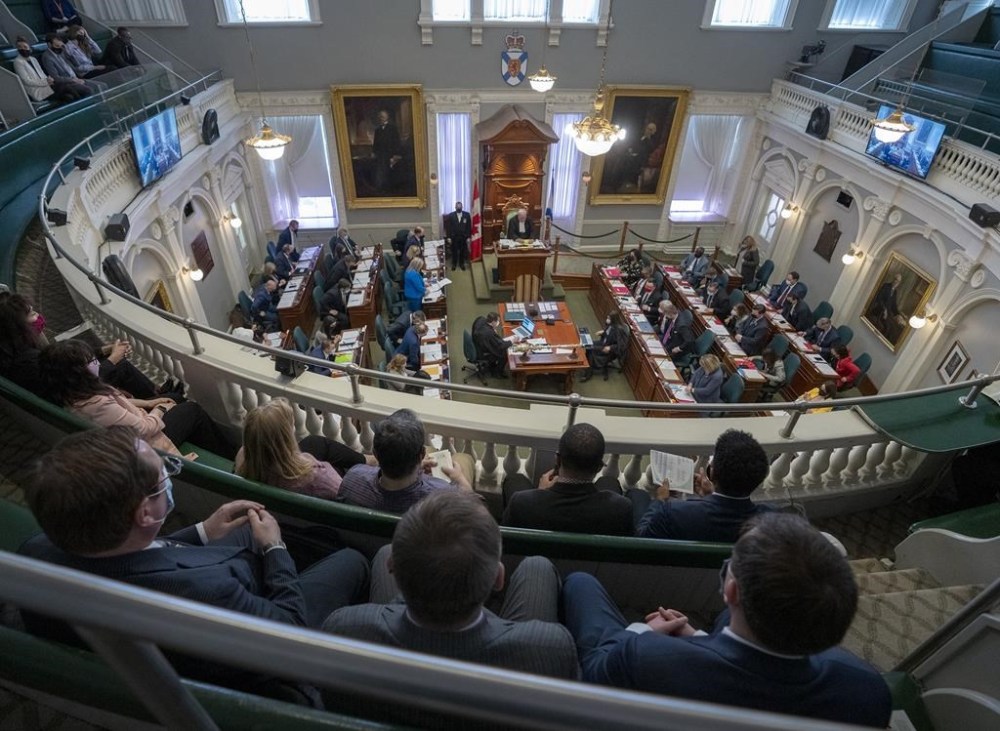Nova Scotia health official says virtual care ‘here to stay’
Advertisement
Read this article for free:
or
Already have an account? Log in here »
To continue reading, please subscribe:
Monthly Digital Subscription
$0 for the first 4 weeks*
- Enjoy unlimited reading on winnipegfreepress.com
- Read the E-Edition, our digital replica newspaper
- Access News Break, our award-winning app
- Play interactive puzzles
*No charge for 4 weeks then price increases to the regular rate of $19.00 plus GST every four weeks. Offer available to new and qualified returning subscribers only. Cancel any time.
Monthly Digital Subscription
$4.75/week*
- Enjoy unlimited reading on winnipegfreepress.com
- Read the E-Edition, our digital replica newspaper
- Access News Break, our award-winning app
- Play interactive puzzles
*Billed as $19 plus GST every four weeks. Cancel any time.
To continue reading, please subscribe:
Add Free Press access to your Brandon Sun subscription for only an additional
$1 for the first 4 weeks*
*Your next subscription payment will increase by $1.00 and you will be charged $16.99 plus GST for four weeks. After four weeks, your payment will increase to $23.99 plus GST every four weeks.
Read unlimited articles for free today:
or
Already have an account? Log in here »
Hey there, time traveller!
This article was published 14/05/2024 (555 days ago), so information in it may no longer be current.
HALIFAX – Nova Scotia will continue to use virtual care into the future to ensure people without a doctor get access to primary care, a health official said Tuesday.
Kim Barro, the province’s associate deputy health minister, told the legislature’s health committee that virtual care has become an important way to access the health system and there are no plans to scale back its usage.
“What we would say is that virtual care is absolutely here to stay, that it’s very important that people have all different kinds of access to primary care practitioners,” said Barro. “We are not looking at a timeline to wind back virtual care.”

However, Barro said the province’s goal remains to connect every Nova Scotian to some form of in-person primary care, either through a physician’s office or a collaborative clinic. She added that’s currently done by referral through a program called Virtual Care Nova Scotia, which is contracted out to private provider Maple.
“If you need to see a person face-to-face, then there’s a pathway to being able to do that,” she said.
She also said it’s important for people to have access to a so-called “health home” where teams of health professionals are familiar with an individual patient’s needs.
According to the province’s primary care wait list, 157,264 Nova Scotians had registered as not having a family doctor as of April 1.
Derek Spinney, chief financial officer at Nova Scotia’s health authority, said more than 400 people a day currently use the virtual care service and about 10 to 20 per cent are often referred to other forms of primary care if their problems aren’t resolved by the call.
“From there they may be referred to a specialist as well,” Spinney said.
Dr. Colin Audain, president of Doctors Nova Scotia, told the committee he believes virtual care, as provided by the province’s agreement with Maple, is a bit of a “Band-Aid solution.” But Audain added the private provider’s service is still an important access point for people who are without primary health care.
He also said virtual care as a concept has been “very helpful” to the overall health system.
“It’s something we’ve leveraged more since COVID,” he said. “It allows patients who might not otherwise easily get to a hospital or a specialist because they live in rural places in the province have access to care.”
Barro said public-private partnerships like the one with Maple have been around for decades and cited the arrangement with Scotia Surgery Inc., a private clinic in the Halifax area that has been used to perform elective day surgeries since 2008. More recently, she said, more than 1.5 million COVID-19 vaccine doses were delivered through privately owned pharmacies.
“A public-private partnership must add value to our health-care system and come at no extra cost to patients or the province,” said Barro. “As the health-care landscape changes, we will need to become even more adaptable to face the challenges and the pressures.”
This report by The Canadian Press was first published May 14, 2024.

